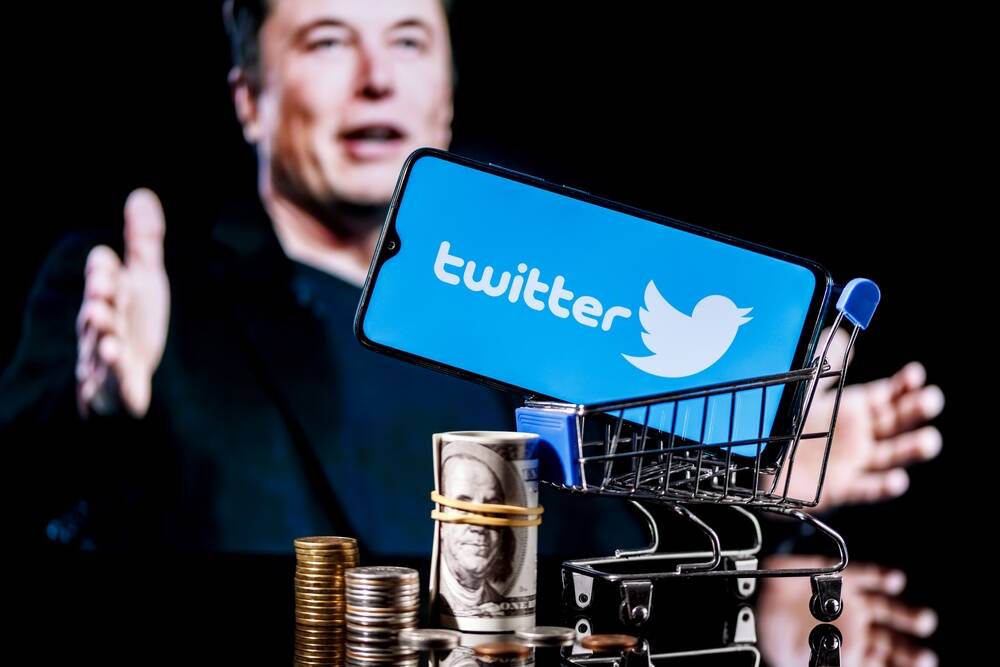Twitter Now Worth Just A Third Of What Musk Paid For It

Twitter's value continues to decline. Investment firm Fidelity reports that its stake in the bird site has lost value for the third time since Elon Musk took over last October. By Fidelity's account, the company is now worth just a third of the $44 billion Musk paid for it.
Fidelity's Blue Chip Growth Fund had an $8.63 million investment in Twitter last November, a decrease to just 44 percent of what it held when Twitter was purchased. In January 2023 it reported the value of its share was reduced to $7.8 million, and as of late April was worth just $6.5 million (Fidelity's Twitter investment is now listed under X Holdings Corp, Twitter's new parent company).
It's not immediately clear how Fidelity arrived at its lower valuation, or if it was based on non-public information from inside Twitter, but it represents continued financial trouble for the social media company, which has been on a steady decline since Musk's admittedly overpriced purchase.
Shortly after closing the deal to buy Twitter last October, Musk said that he'd overpaid for the right to buy Twitter, justifying it by asserting "the long-term potential for Twitter, in my view, is an order of magnitude greater than its current value."
Since then, the company has been faced with a number of legal challenges alleging it has simply stopped paying its bills (both to vendors and employees). It also fired most of the people working for it, continued to experience glitches and crashes, and has alienated a lot of advertisers that, depending on who you ask, may have yet to return.
Twitter kills an API party
Block Party, a service that automates the blocking of trolls and bad actors on social media, announced it was leaving Twitter, effective today, because Twitter's paid API scheme made it impossible for the startup to afford to keep doing business.
"I started Block Party because it felt unfair and terrible that we were just supposed to accept harassment as the price of being online," said developer Tracy Chou. "It will suck to return to a Twitter experience that doesn't have Block Party as a filter. I truly am so sorry and extend my most heartfelt apology to everyone that we won't be able to protect on Twitter anymore," Chou added.
While its Block Party product is on hold on Twitter, Chou and company are working on a browser addon called Privacy Party that centralizes social media privacy controls under one dashboard. It's in alpha and currently supports Twitter, Facebook, and Venmo with plans to add other platforms.
Twitter has also failed to get much traction for its paid Blue subscription service, with less than a percent of Twitter users reportedly having signed up for the $8/month service as of April.
- EU tells Twitter 'you can run but you can't hide' from disinformation policy
- Twitter Spaces groans under weight of Ron DeSantis and Elon Musk's egos
- SCOTUS rules Google and Twitter didn't contribute to terrorist attacks
- Ex-Twitter sextet sues Elon Musk for 'stiffing' them on severance
Among all that was the March leak of an internal Twitter memo setting stock grant valuations for employees that estimated Twitter was worth $20 billion – less than half of what Musk paid for it, and that's right from the memo pad of the man himself.
Let's not forget about the massive interest payments that Musk saddled Twitter with either. The billionaire's purchase of the site required him to get the backing of a number of investors, who chipped in around $13 billion of the $44 billion Musk paid for the platform. Interest payments on that debt are around $300 million, which Bloomberg said has already been paid twice to a group of seven banks who aided Musk but have reportedly been unable to sell the debt.
Musk claimed last month that Twitter was roughly at the "break even" point, though hasn't provided evidence that's actually the case. What has been estimated from the information that's publicly available is Musk's own share in Twitter, which was estimated by Bloomberg for its billionaires index.
According to the publication, Musk's personal investment of more than $25 billion to buy Twitter is now worth just $8.8 billion. Like the company as a whole, Musk's investment is worth just around a third of what it was seven months ago. ®
Boomnote
A tweet went viral the other day with a fake picture of the Pentagon on fire and a claim it started from an explosion. That attack or blaze never happened; it was made up. Now Twitter's extended its Community Notes – little crowdsourced fact-check notes that can appear on dodgy tweets – to images. Thus, messages on accuracy and validity can appear on media to warn people of fake info.
From Chip War To Cloud War: The Next Frontier In Global Tech Competition
The global chip war, characterized by intense competition among nations and corporations for supremacy in semiconductor ... Read more
The High Stakes Of Tech Regulation: Security Risks And Market Dynamics
The influence of tech giants in the global economy continues to grow, raising crucial questions about how to balance sec... Read more
The Tyranny Of Instagram Interiors: Why It's Time To Break Free From Algorithm-Driven Aesthetics
Instagram has become a dominant force in shaping interior design trends, offering a seemingly endless stream of inspirat... Read more
The Data Crunch In AI: Strategies For Sustainability
Exploring solutions to the imminent exhaustion of internet data for AI training.As the artificial intelligence (AI) indu... Read more
Google Abandons Four-Year Effort To Remove Cookies From Chrome Browser
After four years of dedicated effort, Google has decided to abandon its plan to remove third-party cookies from its Chro... Read more
LinkedIn Embraces AI And Gamification To Drive User Engagement And Revenue
In an effort to tackle slowing revenue growth and enhance user engagement, LinkedIn is turning to artificial intelligenc... Read more

